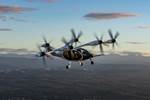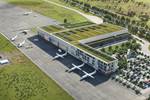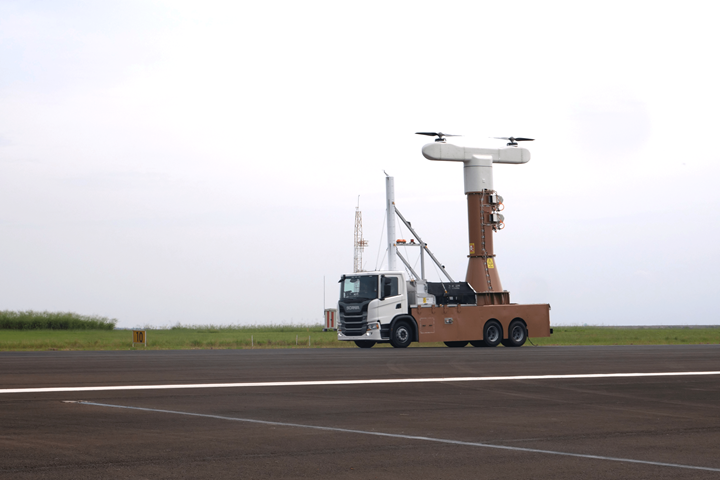Eve Air Mobility advances eVTOL testing phase
The Brazilian aircraft company makes strides toward maturing critical technologies for scheduled certification and entry-into-service in 2026.
Eve Air Mobility (São José dos Campos, Brazil) continues to advance its electric vertical takeoff and landing (eVTOL) testing phase by making strides toward key program milestones. The various tests performed throughout this phase are part of Eve’s building blocks approach to further enhance the maturity of its technology and eVTOL to deliver the best product to the market.
Eve’s eVTOL features a lift+cruise configuration with dedicated rotors for vertical flight and fixed wings to fly on cruise, with no components required to change position during flight. This configuration favors safety, efficiency, reliability and certifiability while also reducing the cost of operation and additional maintenance, repair and overhaul costs.
“We are pleased with our program development activities to date and making good progress as we move toward the selection of primary suppliers and finalize the definition of our aircraft systems architecture,” Alice Altissimo, vice president of program management and operation of Eve, says. “We continue to invest and our team is working hard with the goal of developing a mature aircraft for certification and entry into service in 2026.”
Eve has completed propeller tests on its propeller rig in Brazil in order to measure aerodynamic performance and sound properties for modeling and development. The number and the overall characteristics of blades (torsion, shape, etc.) are critical in defining vibration, load and sound profile, as well as energy requirements of the eVTOL. Company engineers tested multiple models to improve efficiency and reduce sound footprint and operating costs.
The company also recently began testing its vertical lift rotors aboard a new custom truck-mounted platform. The mobile testbed was designed specifically to evaluate the performance of rotors during the transition phase of flight. Testing and gathering data on the aerodynamic characteristics of rotors in forward flight is already in progress.
The results from the company’s recently completed wind tunnel tests, along with the findings from the propeller and truck-mounted rig, are being used to increase the fidelity of the company’s flight simulator and fly-by-wire system. Eve is also using learnings from ongoing enhanced computational fluid dynamics (CFD) calculations to mature the analysis of the transition between the hover and cruise phases of the flight, among other tools.
Eve expects to conclude the selection of main equipment suppliers in the first half of 2023 and start the assembly of its first full-scale eVTOL prototype during the second half of 2023, followed by the test campaign in 2024. Eve’s eVTOL is scheduled to be certified and enter service in 2026.
Related Content
-
Braided thermoplastic composite H2 tanks with co-consolidated molded boss areas to fit EV battery space
BRYSON project demonstrates possible designs, automated manufacturing and low permeability concepts, including EVOH liner and novel PPA matrix.
-
Development of a composite liquid hydrogen tank for commercial aircraft
Netherlands consortium advances cryogenic composites testing, tank designs and manufacturing including AFP, hybrid winding, welding of tank components and integrated SHM and H2 sensors for demonstrators in 2025.
-
Aerospace prepregs with braided reinforcement demonstrate improved production rates, cost
A recent time study compares the layup of a wing spar using prepreg with A&P’s TX-45 continuous braided reinforcement versus traditional twill woven prepreg.

















